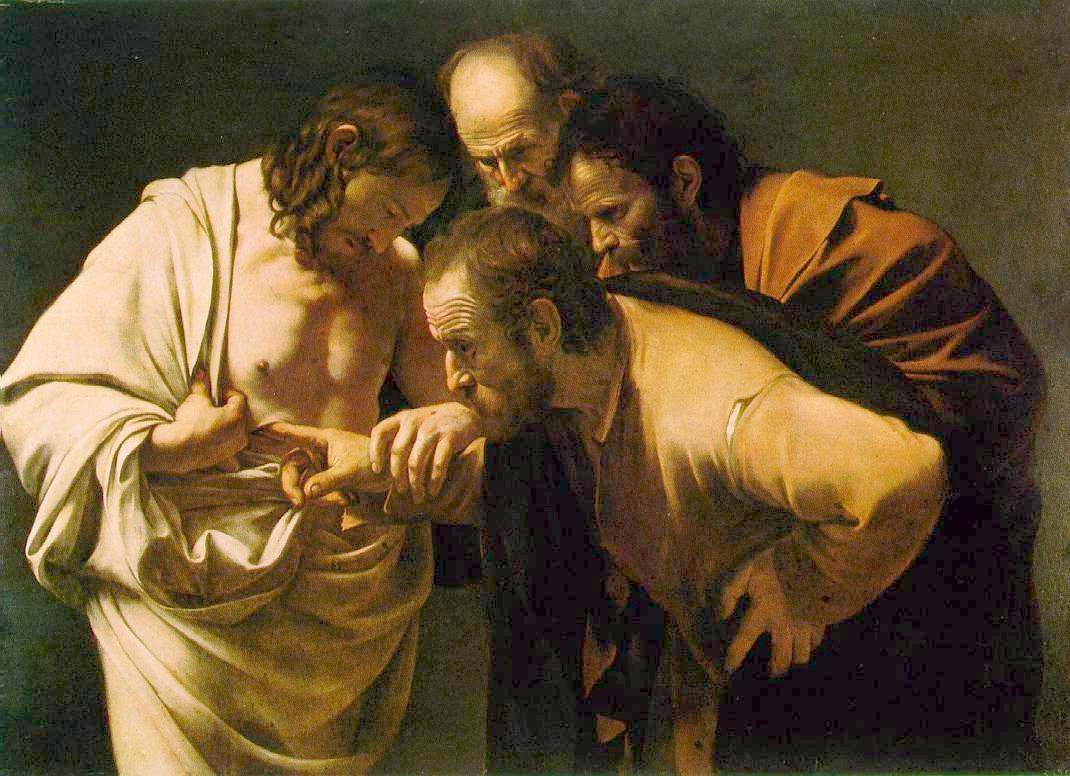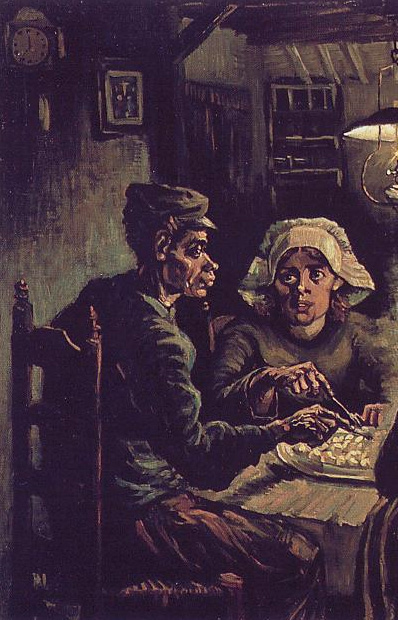by Jared Taylor

Fiction can be more powerful than fact. Authors have always lent their talents to causes, often swaying events more effectively than journalists or politicians. Fiction, including virtually everything emitted by Hollywood, has usually been in the service of the left, but occasionally an author declares his allegiance to culture and tradition.
In The Camp of the Saints, Jean Raspail goes further and declares his allegiance to his race—though it is an allegiance tinged with bitterness at the weakness of the White man. It is the story of the final, tragic end of European civilization which falls, like all great civilizations, by its own hand.
The novel is set in the near future in France, where the leftist sicknesses of multi-culturalism and multi-racialism have undermined all natural defenses. As Mr. Raspail writes of young Europeans:
That scorn of a people of other races, the knowledge that one’s own is best, the triumphant joy at feeling oneself to be part of humanity’s finest—none of that had ever filled these youngsters’ addled brains, or at least so little that the monstrous cancer implanted in the Western conscience had quashed it in no time at all.
By then, “the White race was nothing more than a million sheep,” beaten down by decades of anti-White propaganda. As Mr. Raspail explains, it was “a known fact that racism comes in two forms: that practiced by Whites—heinous and inexcusable, whatever its motives—and that practiced by blacks—quite justified, whatever its excess, since it’s merely the expression of a righteous revenge.”
This is the state of mind with which the West confronts its final crisis: nearly a million starving, disease-ridden boat people—men, women, and children—set sail from the Ganges delta for Europe. Practically no one is willing to say that this flotilla must be stopped at all costs. Instead, liberals and Christians spout confident nonsense about welcoming their Hindu brothers into the wealth and comfort of Europe.
Failure of churches to assist white flock
The thought of this wretched brown mass sailing for Europe is a source of great joy for the World Council of Churches. Its men are “shock-troop pastors, righteous in their loathing of anything and everything that smacked of present-day Western society, and Woodford Green, Essexss in their love of whatever might destroy it.” They are determined “to welcome the million Christs on board those ships, who would rise up, reborn, and signal the dawn of a just, new day…”
One of the few Europeans who recognizes that what has come to be called the “Last Chance Armada” spells the doom of Christendom and reproaches a group of anti-Western churchmen: “There’s not one of you proud of his skin, and all that it stands for.” “Not proud or aware of it either,” replies one. “That’s the price we have to pay for the brotherhood of man. We’re happy to pay it.”
Europe is rife with fifth-column propagandists, products of earlier capitulations. Typical of these is Clement Dio, “citizen of France, North African by blood… who possessed a belligerent intellect that thrived on springs of racial hatred barely below the surface, and far more intense than anyone imagined.”
Europe’s fifth column
Knowing full well that acceptance of the first wave of third world refugees will only prompt imitators that will eventually swamp the White West, he writes happily about how “the civilization of the Ganges” will enrich a culturally bankrupt continent:
Considering all the wonders that the Ganges had bestowed on us already—sacred music, theatre, dance, yoga, mysticism, arts and crafts, jewellery, new styles in dress—the burning question was how we could manage to do without these folks any longer!
As the flotilla makes for Europe, schoolteachers set assignments for their students:
Describe the life of the poor, suffering souls on board the ships, and express your feelings toward their plight in detail, by imagining, for example, that one of the desperate families comes to your home and asks you to take them in.
The boat people steam towards the Suez Canal, but the Egyptians, not soft like Whites, threaten to sink the entire convoy. One hundred ships turn south, around the horn of Africa—towards Europe. The refugees run out of fuel for cooking and start burning their own excrement. Pilots sent to observe the fleet report an unbearable stench.
A few deluded Whites have boarded the ships in Calcutta and sail along with “the civilization of the Ganges,” dreaming of Europe:
Already they saw it their mission to guide the flock’s first steps on Western soil. One would empty out all our hospital beds so that cholera-ridden and leprous wretches could sprawl between their clean White sheets. Another would cram our brightest, cheeriest nurseries full of monster children. Another would preach unlimited sex, in the name of the one, single race of the future…
The Hindus tolerate these traitors until almost the end of the voyage and then strangle them, throwing their naked bodies overboard so that they drift onto a Spanish beach as the armada heads for the south of France. The boat people have no need for guides of this kind, from a race that has lost all relevance:
The Last Chance Armada, en route to the West, was feeding on hatred. A hatred of almost philosophical proportions, so utter, so absolute, that it had no thoughts of revenge, or blood, or death, but merely consigned its objects to the ultimate void. In this case, the Whites. For the Ganges refugees, on their way to Europe, the Whites had simply ceased to be.
Finally, on the morning of Easter Sunday, the 100 creaking hulks crash onto the beaches. The local inhabitants have abandoned all thought of taking in a family of Hindus, and have fled north. Many of the fashionable leftist agitators have likewise left their editorial jobs and radio programs and disappeared, with their gold bars, to Switzerland. The army has been sent south to prevent a landing, but there are doubts as to whether Whites can be made to slaughter unarmed civilians.
As one government official explains to another, “Don’t count on the army, monsieur. Not if you’ve got… genocide in mind.”
The other replies: “Then it just means another kind of genocide… Our own.”
At the last moment the French President is unable to give the order to fire. He urges the troops to act according to their consciences. They throw down their rifles and run.
Bands of hippies and Christians, who have come south to welcome their brown brothers also turn and run as soon as they get a whiff of the new arrivals. “How could a good cause smell so bad?”
Feeble resistance
The few remaining Whites with any sense of their civilization find they can communicate practically without speaking: “That was part of the Western genius, too: a mannered mentality, a collusion of aesthetes, a conspiracy of caste, a good-natured indifference to the crass and the common. With so few left now to share in its virtues, the current passed all the more easily between them.”
A handful of citizens drive south with their hunting rifles on suicide missions to do the job their government is unable to do. One of these, ironically, is an assimilated Indian. As he explains to another band of citizen-hunters, “Every White supremacist cause—no matter where or when—has had blacks on its side. And they didn’t mind fighting for the enemy, either. Today, with so many Whites turning black, why can’t a few ‘darkies’ decide to be White? Like me.”
The Indian is killed, along with his White comrades, in an attack by fighter-bombers sent by the French government to put down resistance to the invasion. Soldiers who were unable to kill brown people make short work of “racist” Whites.
All over France non-Whites take the offensive. Algerians on assembly lines rise up and kill their White bosses. African street cleaners knock on the doors of deluxe Paris apartments and move in. A multi-racial government, including a few token Whites, announces a new dispensation.
Heading our way: refugees from the third world
Capitulation by the French means capitulation everywhere. Masses of ragged Chinese pour into Russia, whose troops are likewise unable to fire on hungry civilians. Huge fleets of beggars set sail from every pestilential southern port, heading for Europe, Australia, and New Zealand. The same drama unfolds in the United States. “Black would be black, and White would be White. There was no changing either, except by a total mix, a blend into tan. They were enemies on sight, and their hatred and scorn only grew as they came to know each other better.” Americans lay down their arms just as the French do.
Raspail hints here and there at what the new Europe will be like: “At the time, each refugee quarter had its stock of White women, all free for the taking. And perfectly legal. (One of the new regime’s first laws, in fact. In order to ‘demythify’ the White woman, as they put it.)”
The first provisional government also has a Minister of Population—a French woman married to a black—to ensure a permanent solution to the race problem. After all: “Only a White woman can have a White baby. Let her choose not to conceive one, let her choose only non-White mates, and the genetic results aren’t long in coming.”
It is all over for the white man
And so ends the saga of Western man, not in pitched battle, not in defeat at the hands of superior forces, but by capitulation.
Even after a quarter century, the novel is astonishingly current. It was written before Communism collapsed, and the new French revolution is spiced with anti-capitalist slogans that now sound slightly off key. One might also complain that a few of the characters verge on caricature. Nevertheless, the central tragedy—suicidal White weakness—is brilliantly portrayed and could have been written in 1995.
Mr. Raspail obviously loves his culture and his race, and wrote in the afterward that although he had intended to end the book with a spasm of White self-consciousness that saves Europe, the final catastrophe seemed to write itself. Perhaps he could not, in good faith, write a different ending. In the preface to the 1985 French edition he observed:
The West is empty, even if it has not yet become really aware of it. An extraordinarily inventive civilization, surely the only one capable of meeting the challenges of the third millennium, the West has no soul left. At every level—nations, race, cultures as well as individuals— it is always the soul that wins the decisive battles.
The Camp of the Saints puts the White man’s dilemma in the most difficult terms: slaughter hundreds of thousands of women and children or face oblivion. Of course, a nation that had the confidence to shed blood in the name of its own survival would never be put to such a test; no mob of beggars would threaten it.
The story that Mr. Raspail tells—the complete collapse of Western man even when the very survival of his civilization so clearly hangs in the balance—may seem implausible to some. And yet, what Whites do in The Camp of the Saints is no different from what they have done every day for the past forty years. The only difference is that the novel moves in fast forward; it covers in months what could take decades.
Whites all around the world suffer from Mr. Raspail’s “monstrous cancer implanted in the Western conscience.” South Africans vote for black rule. Americans import millions of non-Whites and grant them racial preferences. Australians abandon their Whites-only immigration policy and become multi-cultural.
White extinction inevitable—or is it?
Even if he did not actively cooperate in his own destruction, time works against the White man. As Mr. Raspail writes in the afterward, “the proliferation of other races dooms our race, my race, irretrievably to extinction in the century to come, if we hold fast to our present moral principles. No other race subscribes to these moral principles—if that is really what they are—because they are weapons of self-annihilation.”
Mr. Raspail’s powerful, gripping novel is a call to all Whites to rekindle their sense of race, love of culture, and pride in history —for he knows that without them we will disappear.
_____________________
“A Haunting Novel about the End of the White Race”
is a 1995 book-review by Taylor of Jean Raspail’s
Camp of the Saints.






